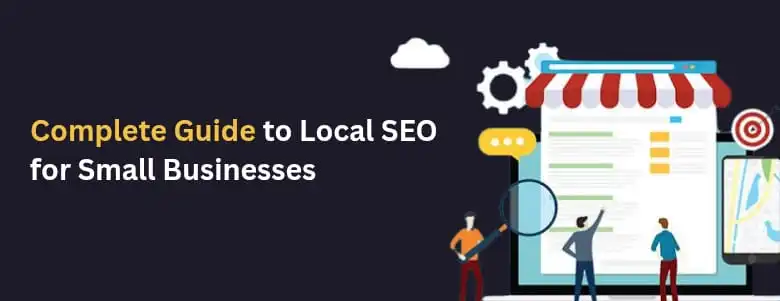Anchor text is basically the clickable link in a hyperlink, conveying context to not only users who click on these links but to search engines doing their crawling through the web; It is among the most central elements in assessing the success or failure of one’s link building. But then, why this much fuss over a seemingly simple little thing like anchor text? This answer is in the way it can control search engine rankings, dictate user intent, and increase your website’s credibility. In this blog, we will explore anchor text in greater depth, its implications on SEO, and how you can use it practically. Whether a beginner or an SEO expert, mastering anchor text is a key step in the optimal linking process.
What is Anchor Text?
The clickable text of an hyperlink is also called anchor text; it’s highlighted in blue, underlined for an indication that it’s an interactive one, and used to connect two content pieces in such a way that the user may navigate from one page to another while offering the search engines some contextual clues on the linked content.
Definition and Function Anchor text describes the destination page. For example, the link “best SEO tools” does to users as well as to a search engine informing that the destination page likely holds information about SEO tools.
HTML Representation Anchor text can be expressed in HTML as <a href=”URL”>anchor text</a>.
Purpose for Users and Search Engines: It makes navigation easy for users. For search engines, it means the relevance of the content linked.
Examples: Examples include an exact match keyword (“SEO services”), branded terms (“HubSpot”), or generic phrases (“click here”).
First Impressions Matter: The proper anchor text helps set user expectations, so aligning it with the content being linked is critical.
How Anchor Text Affects Website SEO
Anchor text is not a mere functional element; it’s a strong SEO signal. Relevance and diversity in your anchor text can determine how search engines perceive the authority and relevance of your website.
Keyword Relevance: Search engines analyze anchor text to determine what the linked page is about. For instance, the anchor text “digital marketing strategies” is making the link more relevant to that term.
Ranking Improvement: Optimized anchor text likely improves the ranking for the keyword because it’s indicating the target term to the search engine.
Avoid Over-Optimization: The over-usage of the exact match anchor text may also bring penalties. Therefore, the goal is a balance.
User Experience: Relevant anchor text supports navigation, hence indirectly contributes to metrics like bounce rate and session duration.
Internal Linking: In a website, anchor text helps spread link equity as well as support page discoverability.
Google Algorithms: Updates such as Penguin punish manipulative usage of anchor text; hence it requires natural diversity in linking strategy.
Why Anchor Text is Essential in Link Building
Anchor text anchors successful link building. It offers some context, drives traffic, and increases credibility for your website.
Better Context: Anchor text gives the search engines clues about the page on which it is being placed to link to, thus doing better indexing and ranking.
Driving Traffic: Descriptive anchor text attracts users to click, driving qualified traffic to your site.
Building Authority: Well-optimized anchor text contributes to a natural backlink profile, enhancing your site’s authority.
Supporting Keyword Strategy: By incorporating target keywords, anchor text strengthens your overall SEO strategy.
User Trust: Accurate and relevant anchor text builds trust with users by meeting their expectations.
Competitive Advantage: Effective use of anchor text can help you outrank competitors for specific keywords.
Types of Anchor Text
Different kinds of anchor texts must be known for creating an even link building strategy. They are used in a specific type and carry distinct SEO implications.
Exact Match Anchor Text-This anchor text exactly matches the target keyword like “SEO audit tools.” Its power can turn against it as excessive use could bring penalties.
Partial Match Anchor Text-Comprises variations or related terms to the keyword such as “tools for conducting SEO audits.” Its usage is safe but effective enough.
Branded Anchor Texts Use the branded term of the trademark; for instance, “Moz.” Applicable for achieving branding authority as well as branding and earning trust Naked URLs Direct anchor text will reflect the full URL for instance,www.example.com Neutral yet less relevant as an anchor.
Generic Anchors The texts in the type, such as click here and learn more. Apply for building different anchors but this would not meet relevance in an SEO perspective.
Balanced Usage: A well-rounded anchor text strategy combines all types to create a natural link profile.
How to Select SEO-Optimized and Content-Relevant Anchor Texts
This must be anchored with the subtle balance of relevance, diversity, and keyword optimization. Here is how it could be achieved as follows:
Matching Content Intent: Be accurate with what the anchor text says regarding the content that is linked from the webpage.
Avoid Spammy Practices: Overstuffing keywords and irrelevant terms should be avoided at all cost.
Use a mix of exact match, partial match, branded, and generic anchors in your anchor texts.
Keyword Research: Utilize tools such as SEMrush or Ahrefs to find relevant keywords.
Use the anchor text as naturally as possible within content without losing readability.
Competitor Analysis: Use successful competitor anchor text strategies as inspiration.
Pros and Cons of Anchor Text in Link Building
While anchor text is a vital component, it is not without its challenges. Here’s the balanced view:
Pros:
- Anchor text improves Relevance: Search engines are informed about the content relevance.
- Improves User Experience: Clear and descriptive text will improve navigation.
- Supports Keyword Rankings: Optimized anchor text helps the targeting of the specific keywords.
- Helps to Build Authority: A strategic approach enhances domain authority.
- Increases traffic: Compelling anchor text enhances user engagement
- Facilitate Internal Linking: Helps distribute the link equity in your site
Cons:
- Risks of over-optimization: The utilization of anchor text over optimum can make it penalty-bound.
- Needs Constant Surveillance: Constant audits are required to maintain a natural profile .
- May Go Wrong: Spammy and insignificant anchors affect credibility
- Time-Consuming: Thorough time is spent in coming up with the right anchor text.
- Algorithm Sensitivity: Google’s algorithms may influence the anchor text strategies
- User Confusion Possible: Misleading anchor text can be very frustrating for users.
Conclusion
Anchor text is an apparently small and less-powerful but vital component of SEO that might potentially change all link-building approaches. It creates bridges between pages to serve better user experiences but also signifies relevance to the search engines. For ranking, it works wonders, and there is still some fine balancing; over-optimization and/or irrelevant anchor text can hurt badly with penalties.
To use anchor text effectively, one needs to know its various types, be sure to make diversity, and align it with content strategy. Keeping track of changes in the algorithm ensures that your anchor text strategy remains strong and adaptable. In addition to anchor text, if done wisely and thoughtfully, will position you far better over competition in such a digital jumbled landscape when using either to create backlinks or internal linking.
Remember that anchor text is not only a link, but also the chance to direct users, demonstrate value, and build trust. Mastering this element unlocks new levels of SEO success and builds a long-term impact on visibility and authority from your website.
Boost your website’s SEO with strategic anchor text! Need expert guidance? Contact WebGi today to optimize your link-building strategy and drive better rankings.
FAQs
1: How long should an anchor text be?
The ideal length should be short, yet descriptive-2-5 words.
2: What is the type of penalty for over-optimization of anchor text in Google?
Google penalizes manipulative anchor text use with Penguin rankings.
3: Does an anchor text determine domain authority?
Yes. A well-defined anchor text profile adds to total authority.
4: Why are internal links optimized with anchor text?
They improve navigation, distribute link equity, and increase user engagement.
5: Should I focus on the exact match anchor text?
Use exact matches very sparingly and balance it with other types.
Author
-

Shweta Tiwari brings her expertise in marketing and a passion for clear, engaging communication to the world of digital content. With 5 years of experience, she excels at breaking down complex marketing strategies into easy-to-understand insights. Specializing in digital marketing trends and strategy development, Shweta helps businesses grow and adapt in today’s fast-paced digital landscape





